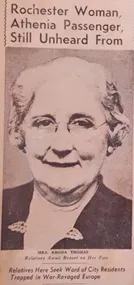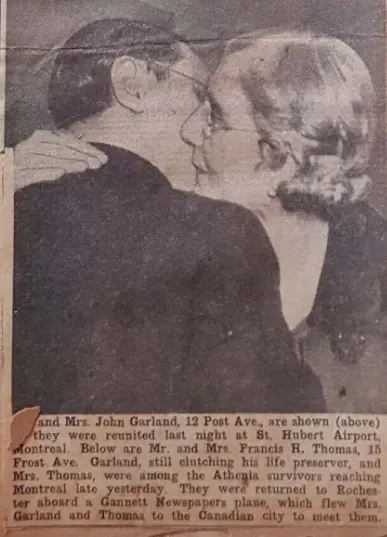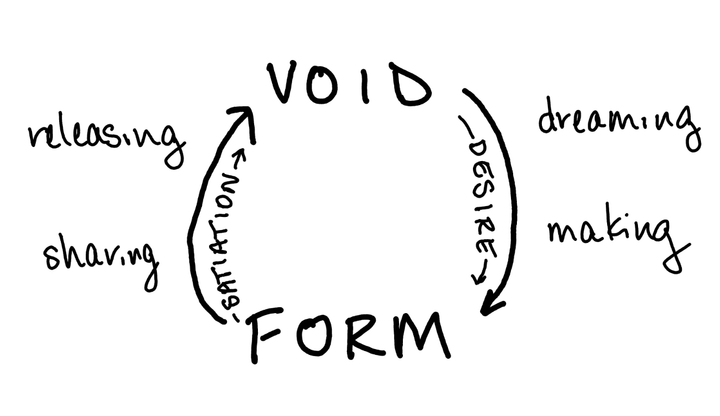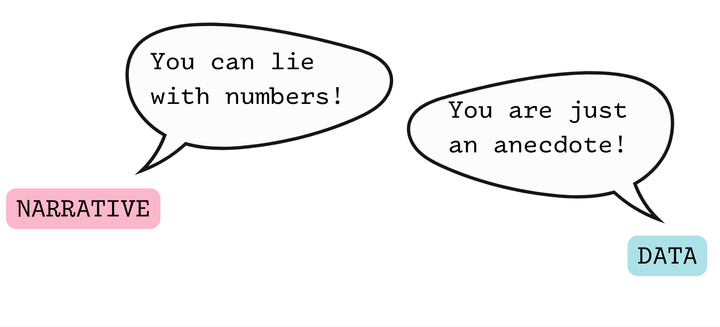My Great-Grandmother's Scrapbook

I traveled to my aunt’s house in Rochester, NY this weekend to scan my great-grandmother’s scrapbook. Those who have been reading for a while know that I can barely drive, and so a four-hour drive is quite substantial for me, quite frightening. But I felt it needed to be done, though I couldn’t say why.
I arrived to find that “scrapbook” might have been a generous word. Although it has a leather cover, embossed, “Scrap Book” the pages appear to be repurposed paper from elsewhere, with text stating that each greeting card comes with a white envelope. Photos are glued in around this irrelevant text, without labels. We can pick up my great-grandmother, my great-grandfather, their children, perhaps her sister. But we don’t know who many of these people are. Perhaps my great-grandmother never imagined the book being in the hands of people who wouldn’t know these names, wouldn’t recognize these faces.
But much of the scrapbook concerns my great-grandmother’s harrowing experience as a passenger of the Athenia, a ship traveling from England to the United States in the fall of 1939, which was torpedoed by a German submarine at the beginning of World War II. She and the other passengers were evacuated into lifeboats, where they floated overnight, in view of the sinking ship and afraid of another submarine attack, before most were rescued by nearby ships who came to aid.
I only heard the funny stories about this growing up—that she had to wear the same stockings for nearly two weeks, often standing knee-deep in salt water, but that they were in perfect condition when she got home, leading the local department store to display them in its window.
That they were rescued from the lifeboats by a yacht belonging to the owner of the Electrolux vacuum company, and that she purchased an Electrolux vacuum in gratitude after arriving safely home.
That the local newspaper sent a private plane to bring her and the other Rochester-based survivor home from Canada when they finally landed.
I didn’t think about what it was to watch others drown, see parents and children separated, hold a baby under her coat for hours in a lifeboat without knowing if the child’s mother was still alive. I didn’t even think about what it was to have to cut short her visit to England—she was there seeing her family for the first time in seventeen years—and to leave without saying goodbye to many of them in order to evacuate England on the brink of war.
I wonder: How did it haunt her? How did it change her? What did she grieve, in private, for the rest of her life?
What minor items were in her trunk that she secretly missed—perhaps with some shame, perhaps thinking she should be grateful just to be alive? What favorite dress or coat was she never able to quite replace, not with something quite that color, not with something that fit just right the way the old one did? What gifts for her newly married daughter? What keepsakes from her hometown of Street, Somerset? Did she lose letters? A diary? The things one misses deeply, quietly, but of so little importance to anyone else that one doesn’t even speak their names.
I’ve scanned the scrapbook today, while the edges of the pages flake off in my hands. I don’t know that it’s any better to have it scanned—digital isn’t forever either. File formats change, things get lost in the sea of data, accidentally deleted. But somehow it was important to me to make this time and scan it. But if she could take the time to clip and glue, I can take the time to scan. But mostly, I can make the time to sit with these pages and wonder. To wonder what isn’t here in the record. To wonder what’s still unsaid.



